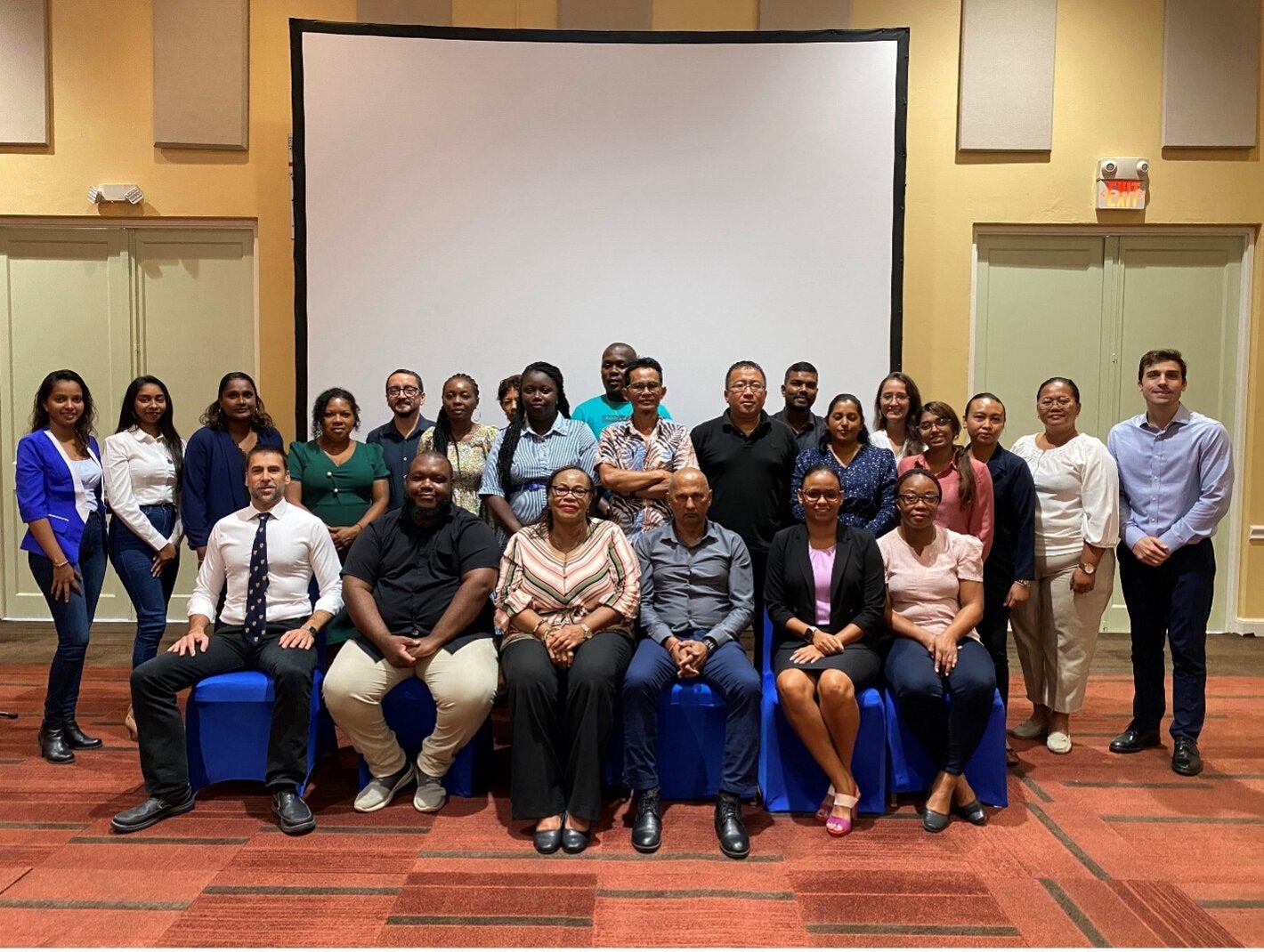
Suriname, November 27, 2023 (PAHO/WHO) – In an effort to bolster its public health framework, Suriname is hosting a critical workshop from November 20 to 24, 2023, focusing on strengthening its capabilities in handling Zoonotic Diseases (C12) and ensuring Food Safety (C13). This workshop, a part of the International Health Regulations (IHR) initiative, is titled "WORKSHOP FOR THE EVALUATION OF CAPACITIES C12 (ZOONOSIS) AND C13 (FOOD SAFETY) UNDER THE INTERNATIONAL HEALTH REGULATIONS (IHR)." It represents a significant step in Suriname's commitment to global health security and safety standards.
The event, held in Paramaribo, brings together a diverse group of professionals, including staff from the Bureau of Public Health, the Ministry of Agriculture, and various sector specialists. Their collaboration reflects a multidisciplinary approach, crucial in addressing the complexities of zoonotic diseases and food safety.
Dr. Noreen Jack, PAHO/WHO Representative in Suriname, highlighted the importance of a united and open-minded approach during the workshop. She encouraged the participants by saying,
"I invite everyone here to participate actively, with openness and a sense of teamwork. Let's pool our experiences, gain insights from each other, and develop practical strategies that will strengthen our handling of Zoonotic diseases and food safety. Additionally, I want to urge you all to seize this chance to promote and advance the One Health Approach."
The workshop's primary objectives are multifaceted. It aims to facilitate the self-assessment of Suriname's capabilities in managing zoonotic diseases and ensuring food safety, as outlined in the State Party Self-Assessment Annual Reporting (SPAR) tool under IHR. This involves an in-depth review and monitoring of current capacities and the development of strategic action plans to enhance these areas.
Dr. Xavier Roche, commenting on the workshop's significance, noted, "Suriname’s national counterparts showcased great engagement in exploring One Health multisectoral collaborations for the detection, notification, surveillance, and response to zoonotic diseases and food safety events. This collective participation is vital for strengthening IHR core capacities, particularly in the areas of Zoonotic diseases and Food safety."
Throughout the week, participants engage in working group discussions and presentations, focusing on collaborative and multisectoral approaches to health emergencies. These activities are designed to foster a deeper understanding of best practices in zoonosis and food safety, encouraging open dialogue and knowledge sharing among different sectors.
The workshop is expected to yield several key outcomes. A comprehensive assessment report will detail Suriname's current capacities in Zoonosis and Food Safety, identifying areas of improvement and recommending actions. An enhanced understanding and knowledge among participants will also be a significant outcome, alongside the development of a draft action plan for strengthening capacities in Zoonosis and Food Safety using a One Health approach.
Dr. Manuel Sanchez, Coordinator of the Area of Epidemiology at the PAHO Veterinary Public Center (PANAFTOSA), emphasized the importance of intersectoral collaboration:
“SPAR Capacity 12 shows the level of operationalization of the One Health concept to tackle zoonotic diseases in a country. Suriname needs to progress in this capacity, strengthening collaborative work through the formulation and implementation of intersectoral policies, which are essential for an optimal approach to prevention, surveillance, and control of diseases such as avian influenza, yellow fever, rabies, or West Nile Fever.”
Dr. Margarita Corrales, Food Safety Coordinator at PANAFTOSA remarked: "Food safety is a critical component of public health, and its importance cannot be overstated". A throughout implementation of good practices along the food value chain is key to ensure safe food. This also requires the active involvement and collaborative work of different sectors. When a food safety incident occurs, it is important that countries have a well-defined food safety crisis management plan and procedures to respond to these emergencies in a timely and coordinated manner.
According to Oscar Mesones, Technical Officer at PAHO Suriname, bringing together experts from different disciplines and sectors, we can develop more comprehensive and effective strategies. This collaboration is key to identifying gaps, sharing knowledge, and building a robust and resilient health system that can respond efficiently to current and future health challenges.
Context
The International Health Regulations, established by the World Health Organization (WHO), are a legally binding framework for 196 countries, including all WHO Member States, to strengthen global health security. Adopted in 2005, the IHR requires countries to build and maintain the capacity to detect, assess, report, and respond to public health events. The regulations focus on a broad range of health threats while maintaining the free flow of trade and travel. This global health instrument is essential in guiding national strategies and international cooperation in the face of health emergencies.
The Monitoring and Evaluation Framework of the 2005 International Health Regulations mandates annual submissions to the World Health Assembly via the SPAR tool. This process assesses 15 key capacities to ensure global health safety. Suriname's proactive engagement in this workshop underlines its dedication to meeting these international standards and improving its public health infrastructure.





